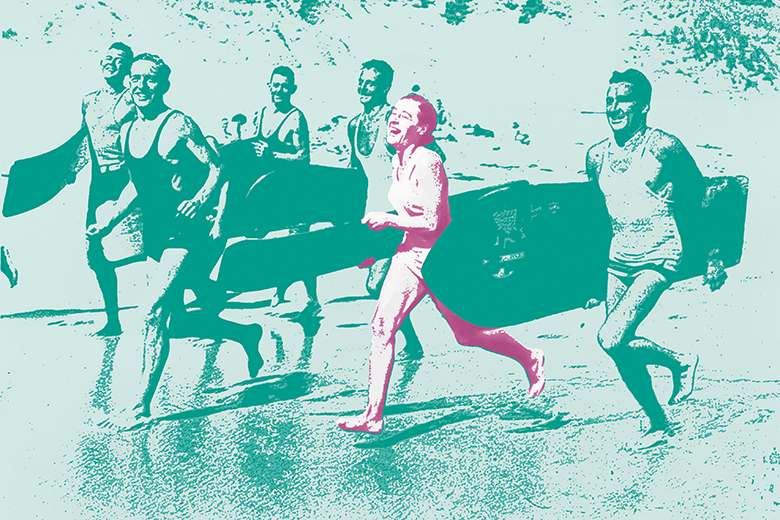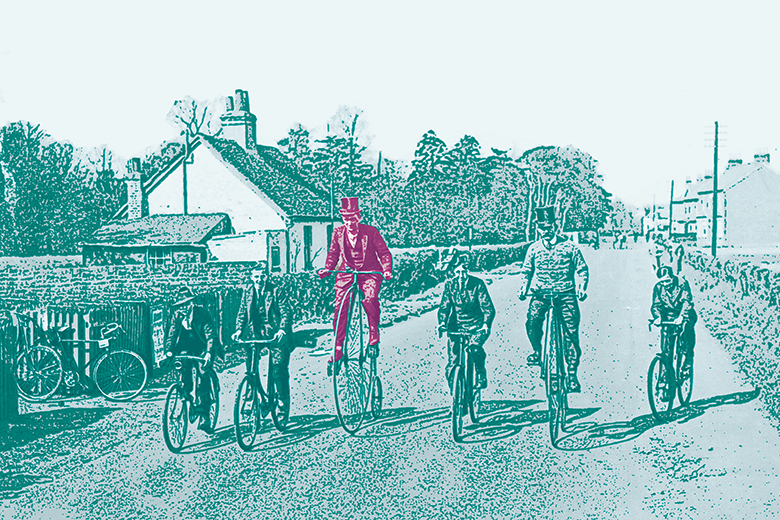‘Academic staff often revert to their inner child when confronted by the head’
I was hired to be the head of my new department when I had just turned 50. I had previously been graduate director at two other institutions, so I had a basic knowledge of administration and had worked with staff in a directorial capacity. But being graduate director means mainly interacting with graduate students, while being head involves dealing with one’s own peers.
That makes things a bit trickier. Graduate students are generally happy to receive any advice and attention. Academic staff get worried when attention is paid. Graduate students tend to try to be mature and show they are worthy of their academic futures. Academic staff often revert to their inner child when confronted by the head. Graduate students come in search of solutions. Academic staff often come in search of problems.
Perhaps the most frustrating thing about being head is that you are suspended between the more powerful deans and the less powerful professors. Heads, at least in my university, serve at the behest of the dean and can be fired by the dean. Staff expect you to represent their interests and, generally, as a fellow professor, you want to. However, deans have other plans, and, in many places, have a somewhat lower opinion of academic staff than you do.
In my case, I was hired by a relatively new dean by the name of Stanley Fish. A well-known academic and administrator, Fish had just relocated from Duke University where he had run the English department and headed Duke University Press. The new institution at which we both served was a top-level public university that had probably seen better days in terms of financial support. Fish (who many people will remember as being the model for Morris Zapp in David Lodge’s campus novels) was hired to transform the place, and he came trailing clouds of glory and bags of cash.
My challenge was to get my department on board with this external invasion. Even though I could offer new perks and financial resources, the old-timers were deeply suspicious of Fish and his retinue, seeing them as an occupying force. As much as I would argue that high waters raise all boats, the influx of highly paid superstars made the rest of the department feel more like they were personally drowning rather than being buoyed up.
Departments often hire heads to create change and you are invariably asked in interviews about your vision for the department. But most people hate and fear change. So when I offered my fellow professors various perks, such as raising their research budgets from a paltry amount to a substantial one and paying for their out-of-town telephone calls (yes, they previously had to pay for them personally), they were deeply suspicious. There had to be a catch. There wasn’t one, but it took them a few years to realise that the changes around them were for the best.
I confess that I did make some mistakes that contributed to the fear of change. When I arrived, I arranged one-to-one meetings with every faculty member. I thought this would bring me closer to my new colleagues and give them a sense of what I was about. In those meetings I’d ask them what they would like to see changed, and I thought aloud about what I might do, to gauge their assessment. The rule I learned from this was “don’t think aloud”. Simply speculating panicked people who, through the echo chamber of rumour, saw me as making drastic changes to the world they knew. The other linked rule I would pass on is: “Don’t make any changes in your first year as head.” It takes that long for people to accept you as their leader: before then, you don’t have the cultural capital and support to restructure things.
One thing I did right was to make all procedures in the department clear, knowable and logical. In the past, there had been a lot of murkiness and arbitrariness in funding, assignments and the like. I hired new assistants, who handled the money in ways that were above board and accountable. But I was fortunate to be in a situation in which money was coming into the department; I’ve seen some of my successors in harder times struggle with managing cuts.
Being a head of department is nerve-racking and – despite the teaching relief – time-consuming. No one will ever thank you for doing it. But there is a rewarding feeling of steering the ship and, if you are lucky, taking it to interesting places. And although the captain inevitably goes down with the enterprise, when icebergs loom it is better to be the guy calling the shots on the bridge than the guy scrubbing the deck, praying helplessly.
Lennard J. Davis is distinguished professor of liberal arts and sciences at the University of Illinois at Chicago.
‘For the first 10 years of my career, I was usually the only woman in a room of men 30 years my senior’
“I don’t know who you think you are, girly, but don’t tell me what to do.”
When this statement emerged from the mouth of a colleague, I was in my forties and was already a dean. I was a girly with three bachelor’s degrees, three master’s degrees, two graduate diplomas and a PhD. I was a girly who had written 17 books and nearly 200 refereed articles and book chapters. I was a girly who had worked in nine universities in four countries.
My response was to smile at the mansplainer and express once more my respect for his expertise: respect that he had not shown to me.
In his seminal book on higher education, The Knowledge Factory, published in 2000, City University of New York sociologist Stanley Aronowitz argues that men and women who fail as teachers and researchers end up in administration. Conversely, I have always believed that academics must research, teach and lead. I have never endorsed the creation of a stratum of “academic managers”, separated from the daily thrust of learning, teaching, reading, writing and thinking.
The phrase academic manager is part of the problem. It implies that such a person could also manage retail, real estate or food: that managing academics is like managing stock at a stationer. It is inspired by the Michael Gove model of public policy: it is post expertise.
Such assumptions are wrong, offensive and damaging. Since my late twenties, I have combined leadership roles with teaching and research. For the first 10 years of my career, I was usually the only woman in a room of men 30 years my senior. I wasn’t there because anyone in the male university hierarchy believed in my ability. They let me lead because other academics wanted to focus on teaching and research. They did not want additional responsibilities. “University service” was a distraction from professional goals: it was just academic housekeeping.
My motivation was different. I assumed leadership roles because I wanted to correct the toxicity I saw in universities: not just sexual harassment but also caustic bullying of academics of both genders as well as widespread, petulant self-absorption. I wanted to prove that leading from the well of intellectual generosity, kindness, openness and respect can be successful.
I have led in some challenging environments. But I have enjoyed the intellectual, professional and personal challenges of holding a course even amid tempestuous structural changes. It has given me great pride – and it remains a great privilege – to empower the careers of colleagues and enable a successful trajectory for our students.
To find opportunities to combine teaching, research and leadership, I have had to move around the world. I do not wait for patronage – male or otherwise – to bestow an opportunity. The personal costs of this international mobility are high. Friends are scattered across the planet, and shadows and ghosts from former workplaces attend most meetings, creating an intriguing puzzle in my present academic life.
Brutalising sexism is the silent killer of women in leadership, and it is worse in Australia than in the UK. Men can wear leadership like a starched collar but leadership for women is a trench coat that is crumpled, baggy and drags in the dirt.
For women in universities, their knowledge is reduced to opinion. Their expertise in higher education is reduced to “counselling” for students. Women in academic leadership in Australia are perched on the fabled glass cliff, concentrated in the positions associated with a greater risk of failure or criticism, which men prefer to avoid. But, from this vantage point, it is quite a view – while it lasts.
Every morning, as I walk up one of the gothically steep hills that feeds into Flinders University in Adelaide, I feel hope for the day to come, pride in my graduate research team, respect for my colleagues and belief in our students. In such an environment, academic leadership is sourced from knowledge and expertise, fuelled by optimism and compassion, and – at its best – capable of delivering a nation to its future. It’s not a bad way to spend your day.
Tara Brabazon is dean of graduate research and professor of cultural studies at Flinders University, Australia.
‘The trick is to remember that there are always more solutions than there are problems’
Department chairship is famous for being a thankless, paper-pushing job that nobody wants. Now, let me start by saying that I have a reputation for sometimes being overly positive, so feel free to take all this with a grain of salt. But if you find yourself in the role of chair, I say you have the opportunity to transform the negative perceptions and do an immense amount of good.
For starters, don’t believe what you hear about all your time for teaching and research disappearing into a sea of administration. Even at the end of an eight-year stint in the role, I still teach a broad variety of classes regularly, write books (I’ve published three during my tenure) and engage in lots of additional service activities, such as chairing our campus’ free speech task force.
That said, when you are the department chair, that role does become primary. But, no matter what people may say, the role can and should be an extraordinarily positive experience.
We have a large department, with about 20 full-time academic staff and about 700 students spread across 10 different undergraduate and graduate programmes. Our students are our lifeblood and, from the outset, we try to empower them by offering them every opportunity to interact with us – and each other – beyond the confines of the classroom. We have student clubs, lecture series, advice forums, a kickball tournament and a strong record of having students join faculty at conferences. I see my role as cultivating and coordinating these activities in a way that truly creates community.
If your world is like mine, then you know that people don’t recognise others’ achievements nearly enough. As department chair, you have the opportunity to fix this. For instance, I have made sure we prioritise our semi-annual award ceremonies, where we recognise the achievements of our graduate students. Parents and friends are invited and a lot of positivity is generated.
You also have the opportunity to recognise the great work of your staff. This can take the form of highlighting their achievements in a newsletter, writing thank you letters to them or helping those nominated for awards with letters of support.
Recognising the achievements of alumni is also critical to our mission, and I have been able to take the lead in efforts to stay connected with them. As I see it, our primary reward, as educators, is not financial. It’s better than that. It is found in the successes of those we work so hard to develop.
I’d be lying if I said that being departmental chair is all peaches and cream. As with the oversight of any organisation, there are always going to be difficulties. Any time you have to deal with academic dishonesty, you have a problem. There are few situations as messy. Sometimes students complain about the advice they receive from a faculty member. You will also hear complaints about teachers being delinquent in a number of ways – overly harsh, missing in action, non-responsive, unfair and sometimes worse. You will hear from the dean’s office that a class has to be cancelled. You will hear from other administrative offices that your numbers are too high. Or too low. Or too something.
You will almost undoubtedly hear about “catastrophic budget cuts”. You will have a role in hiring decisions that don’t help your popularity index. You will have a role in reappointment decisions that don’t help your popularity index. You might even have a role in firing decisions that drive your popularity through the floor.
The trick is to remember that there are always more solutions than there are problems. There are always more opportunities to make people’s lives better than to make them worse.
Ask yourself this. Are you an academic who enjoys an extraordinary challenge? Do you like to help bright young minds develop in an exciting and multifaceted way? Are you interested in helping a community of scholars to advance knowledge in your field of enquiry?
Then the department chairship is for you.
Glenn Geher is professor and chair of psychology at the State University of New York at New Paltz.
‘I try to listen without offering advice straight away, and not to reply immediately to provocative emails’
After my appointment as head of University College London’s department of chemistry was announced last year, I was touched by the number and variety of people – within the university and beyond – who wrote to congratulate me. Much of this was down to the fact that I was the first female to lead the department since it was established back in 1828. But that wasn’t something that I had given much thought to when considering whether to put myself forward for the role.
My thoughts had centred, rather, on questions such as: Am I ready? Am I good enough? What impact would I have on the department? And would the role be as burdensome as is often believed?
But the vacancy came up at an opportune moment for me. I had just completed an excellent “women in leadership” course, which had stimulated me and given me the confidence to conclude that I was ready to move further up the managerial ladder. I was already head of one of the department’s three sections, and also vice-dean (education) for UCL’s faculty of mathematical and physical sciences. And previous heads insisted that although the role was challenging, it was also very fulfilling.
I was aware that I would be taking on more managerial responsibilities but I, somewhat naively, didn’t think that it would be too big a step up. In some ways it hasn’t been – it is just an awful lot more of what I was doing in previous roles. However, there are many aspects that are significantly more demanding, including having budgetary responsibility for the department. But I strongly believe in teamwork and I’m lucky to have great support from my management working group and other dedicated colleagues.
I’ve always believed in leading by example, so I’ve tried to maintain a good level of teaching and research. I still give lecture courses and demonstrate to the students in the lab as I don’t want to end up being too far removed from the main reason that I went into academia. I also believe it is positive for the students to see that those running the department care enough to teach them. As for my research, my level of productivity has remained the same as before – although that is because I am very fortunate to have some excellent postdocs who help to run my group.
I suppose I could be considered highly competitive in my own quiet, determined way, and I have always striven to be the best I can be in all aspects of my academic life. However, taking on departmental leadership entails something of a shift in priorities: I see my job now as facilitating career progression for everyone in the department – helping them strive to be the best they can be.
In the short time that I have been head, I have learned not to respond too precipitously in certain instances. I try to listen without offering advice straight away, and not to reply immediately to provocative emails, before I have had the chance to consider all viewpoints.
Colleagues in the department have a real drive to support our students and to facilitate departmental success. As head, I strive to show them that I trust them to do that, and to get on with any tasks assigned to them. Refraining from micromanaging everyone also helps me to maintain a good work-life balance. However senior you are, it is important to make time for your family and switch off from the job sometimes.
Claire Carmalt is head of the department of chemistry, University College London.
‘I have a terrific face for radio and can look a bit intimidating. But I do try’
Leadership is a strange thing. Some people want it and get it, others don’t want it but have it thrust upon them. Either way, it is better to be good at something than rubbish at it – particularly when what you do affects the lives of others. Good leadership (as distinct from management) can inspire people and can help individuals and institutions to improve and grow. And, like other skills, it can be worked on and developed.
On being asked to write this piece, I reflected on my own experiences, and on the how and the why of leadership. I have come up with eight simple rules. It’s a slightly awkward number but I’m sticking at that. If you need any more, you’re probably overcomplicating the job.
- Appoint and work with the right people. I earnestly believe that I wouldn’t be much good at my job if I didn’t have excellent people around me. And even if they aren’t excellent across the board, they are all good at some things. Recognise the strengths of those who work with you (note, I deliberately don’t say for you) and help them to identify where they need to develop.
- Respect time and workloads. Encourage people to have a healthy work-life balance. This includes not expecting long hours and setting an example by not sending emails at night or at weekends unless they are labelled “urgent”. Start meetings on time and finish them five minutes early – people have other meetings to get to.
- Smile if you can. Be empathetic, approachable and honest. I struggle with the first, as I have a terrific face for radio and can look a bit intimidating. But I do try. On being honest, I don’t mean that you should tell people everything all the time: leadership sometimes requires confidentiality. But don’t lie – and be up front about it when you are unable to speak about certain things.
- Delegate and monitor. Most people want and accept responsibility. Make their job worthwhile by giving them worthwhile things to do and letting them get on with it. Don’t intrusively micro-manage. And let people know when they have done well. Always credit others and never take credit for the work that they have done.
- Encourage innovation. Foster free-spirited and radical thinking, with the explicit and collective aim of constant improvement. Universities are, rightly, places of creativity and differences of opinion – seek these differences and consider them seriously.
- Be decisive. Analyse, synthesise and evaluate all the relevant and competing information you need to make a decision. This entails early engagement with those who will have to implement it. Then make the decision. Some people will be disappointed – make sure you explain your reasoning to those affected.
- Admit your mistakes and correct them. You will almost certainly make some wrong decisions at times. Own up when you do, and look for a way to put it right. Doing so helps build others’ trust in, and respect for, you.
- Above all, try to be a decent human being. If you don’t know what that means, don’t even dream of going for that vacant head of department role.
Steve Olivier is deputy vice-chancellor at Abertay University. He was formerly head of the School of Social and Health Sciences at Abertay and, before that, head of sport sciences at Northumbria University.
‘I suddenly became much more aware of all my colleagues as people, with rich lives complete with manifold successes, challenges and issues’
I’ve had an interest in management through much of my academic career. Working at the applied end of physics research and engaging with companies, you see how management, widely conceived, can be used for the delivery of success – or failure.
Fifteen years ago, I studied part-time for an executive MBA as a learning experience, to acquaint myself with the vocabulary and concepts of management. It was enlightening to put some of my own experiences into a new set of reference frames. I recognised that there are occasions when you can effect change and other times when you have to manage how externally imposed change has an effect on you and your colleagues.
I would not say I coveted the role of head of school but it seemed a natural progression and, when it came up a few years ago, colleagues encouraged me to take it on as I’d had a long spell as one of several directors of research within the school.
Originally, schools within my university were treated as discrete business units. However, in the past two years the vice-chancellor has re-established faculties as significant strategic and managerial bodies. I have really enjoyed my role on our faculty executive as we shape the new strategy and I have been able to make a difference at that level by securing a group of mathematics posts for the school.
I’ll be honest and say becoming head didn’t come as a big shock to the system. The MBA has been a help indirectly, and my school has quite a devolved structure, so I had already had responsibility for budgets and personnel (including appraisals, recruitment and promotions). It was certainly very strange to have to share my diary with administrative staff: having my time allocated by other people was a new experience. But the biggest change was that I suddenly became much more aware of all my colleagues as people, with rich lives complete with manifold successes, challenges and issues.
By and large, I believe academics should be left to get on with what they do best. I see my role as being to create a structure and environment within the larger organisation and its priorities that allow us to collectively do the best education, research and impact we can.
That’s actually been a big challenge. A new faculty system is viewed warily by staff who have optimised their actions and behaviours to established patterns. So, I’ve been quite hands-on, as I have had to make significant structural changes to align to the faculty and its operation. I believe staff are starting to see the benefits of this in issues close to them, such as the way changes to capital funding and forward budget planning allow us to pool resources across the faculty to do things sooner than would have happened in the past.
One of the highlights of my role is the privilege of reading out the names of the students from our school on graduation day. On the downside, finding space and time for the conflicting demands of being an academic and a manager is a constant challenge.
In my view, it is important for a head to maintain a connection with education, so I still teach one module and supervise some final year project students. I continue researching, too, and I am fortunate to have recently been awarded a Royal Academy of Engineering Research Chair, in partnership with Seagate Technology, who sponsor a large part of my research.
But the time I had for travel associated with research was severely hit in my first year as head. So, with the support of my faculty pro vice-chancellor, I’m appointing a deputy head of school to look after day-to-day operations while I lead on strategic direction. I’m hopeful it will ultimately be a win-win for all parties involved. The school will still be managed appropriately and I will have more time for research. In undertaking both roles, I hope that, in some way, I can act as a role model to younger staff.
Robert Bowman is head of school and Seagate Technology Royal Academy of Engineering Research Chair in Advanced Materials for Data Storage in the School of Mathematics and Physics at Queen’s University Belfast.
‘Smile a lot and remain calm no matter how extreme the circumstances’
These are some of the things that I tried to do as head of department and that I wish I had done more:
- Search out talent. Your first priority is to hire the best people you can. If this takes up less than half your time, you may not be putting first things first. Your department is its people. Your hires will have a more lasting impact on it than anything else you do.
- Take responsibility for others’ failures, not their successes. Some of those around you may lack confidence in their own leadership and administrative competence. Expecting to fail, they will give time to self-insurance and setting up reasons for failure. If they are confident you will take responsibility if things go wrong, they will switch effort to their core tasks, becoming more productive and more likely to succeed.
- Appear to be in control at all times. Smile a lot and remain calm no matter how extreme the circumstances. If you do this, people will believe that you are in charge and they will behave accordingly. If you stop pretending, even for a moment, people will say that you are losing it. And you will have lost their confidence.
- Respect process. Quick decisions are good and process takes time. But process permits consultation, ownership and legitimacy. If your department has clear processes, for example, for probation or promotion, uphold them. If your department lacks them, devise them, have them agreed, and be bound by them yourself.
- Manage your manager. Sometimes, you will need to take a decision to the vice-chancellor, president or dean. Remember that these people are just as overworked as you are. If possible, never go to them without being able to state clearly what outcome you prefer and why. Your bosses will give you what you want gratefully because you’ve solved a problem before they knew it existed.
- Maintain good relations with everyone. You never know when you will need an ally or someone to cover your back. Do not pick fights unnecessarily. If you find you have done so, apologise at once, then try to make amends.
- Don’t try to answer every email. Other things are more important. No one will remember that you were a great chair because you answered every email.
- Don’t hide behind email. Walk down the corridor and knock on a door rather than send an email 20 metres. If you have a hard message to deliver, do so bluntly, face to face. Don’t let email rush or panic you. If one gets under your skin, wait 24 hours. Preferably, don’t reply; if you must, reply in person. If you gave offence by email, apologise in person.
- Tell the students what you are going to do, then do it. This is the first of two rules of civilised behaviour that you must impose on your colleagues – and maintain yourself – at all costs.
- Do not make the support staff cry. This is the second rule. No one is too important to be made to apologise. Remember that your support staff will still be running your department long after you are gone.
- Spend as much as you can. A financial surplus never made a great department. However, financial losses can ruin a department, so you must have enough income to spend.
- Spend as much as you can on food. The larger your department, the more it needs to be fed. Food brings people together and keeps them cheerful. They will enjoy each other’s company and rediscover what they share.
- Give something back to the underprivileged. Occasionally, spend time with your family and former friends.
Mark Harrison is a professor in the department of economics at the University of Warwick. He was head of department between 2005 and 2008. This is an edited version of a piece that first appeared on the department’s website.
POSTSCRIPT:
Print headline: Heads and tales
Register to continue
Why register?
- Registration is free and only takes a moment
- Once registered, you can read 3 articles a month
- Sign up for our newsletter
Subscribe
Or subscribe for unlimited access to:
- Unlimited access to news, views, insights & reviews
- Digital editions
- Digital access to THE’s university and college rankings analysis
Already registered or a current subscriber? Login










